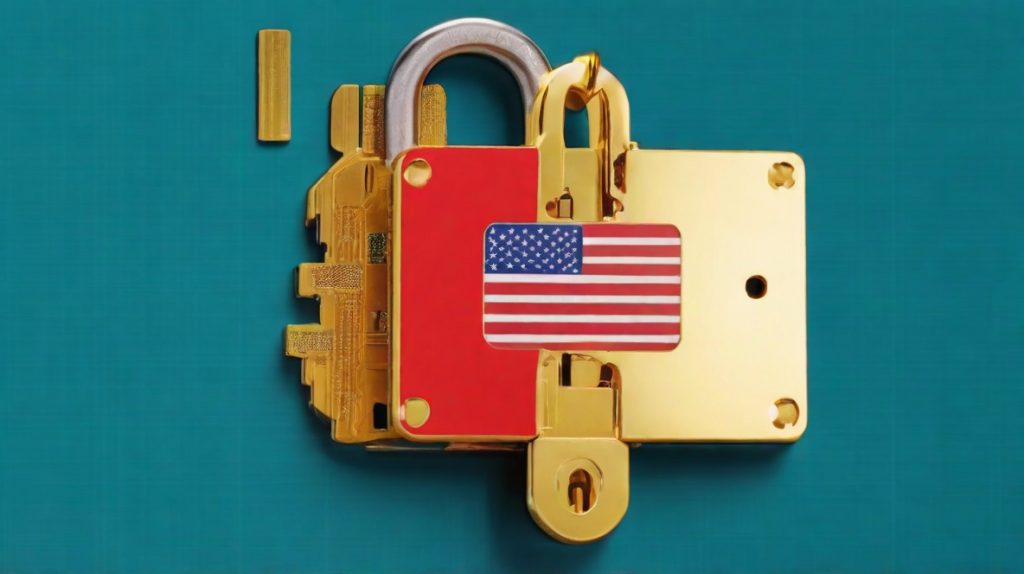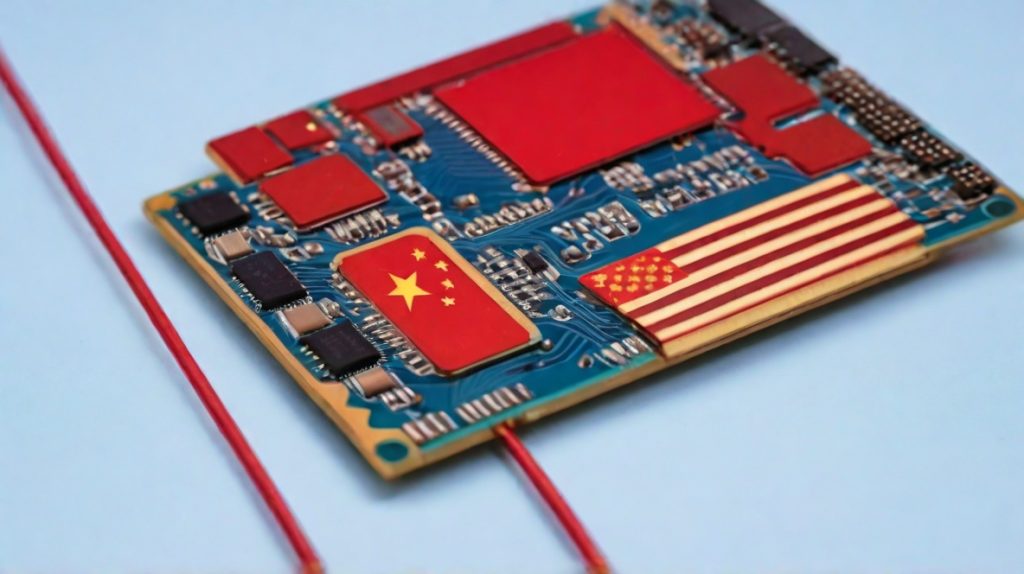Chinese firms have found a way to circumvent US export restrictions on advanced AI chips by accessing them through cloud services provided by American companies like Amazon Web Services (AWS). This loophole allows Chinese organizations to use high-end US AI technologies that they are otherwise prohibited from acquiring directly.
Over the past two years, the US government has implemented increasingly stringent regulations to prevent top US AI chip designers such as Nvidia and AMD from selling their most advanced chips to China. These restrictions aim to limit the Chinese military’s access to cutting-edge technology. However, a Reuters investigation has revealed that Chinese entities are bypassing these restrictions by utilizing cloud services.
The investigation, based on a review of more than 50 public tender documents from the past year, found that at least 11 Chinese organizations have sought access to restricted US technologies or cloud services. Four of these entities explicitly named Amazon Web Services as their cloud service provider, although they accessed the services through Chinese intermediaries rather than directly from AWS.
One notable example is Shenzhen University, which spent 200,000 yuan (approximately $28,000) to access AWS cloud servers powered by Nvidia A100 and H100 chips for an unspecified project. The university obtained this service through an intermediary called Yunda Technology Ltd Co. Both Nvidia A100 and H100 chips are explicitly banned from direct export to China under US regulations.

Another instance involves Zhejiang Lab, a research institute developing its own large language model called GeoGPT. The lab stated in a tender document that it intended to spend 184,000 yuan on AWS cloud computing services because its AI model couldn’t get enough computing power from homegrown Alibaba cloud services.
The use of cloud services to access restricted technologies does not violate current US regulations, as the laws only govern the direct export or transfer of physical commodities, software, or technology. This loophole has raised concerns among US officials and lawmakers.
Michael McCaul, chair of the US House of Representatives Foreign Affairs Committee, expressed his worry about this issue, stating, “This loophole has been a concern of mine for years, and we are long overdue to address it.” In response to these concerns, efforts are underway to tighten regulations on cloud access to advanced US technologies.
In April, legislation was introduced in Congress to give the US Commerce Department authority to regulate remote access to US technology. The department has also proposed new rules that would require cloud services to verify users of large AI models and report to regulators when these models are used for potentially malicious activities.
The Commerce Department spokesperson stated that they are “seeking additional resources to strengthen our existing controls that restrict PRC companies from accessing advanced AI chips through remote access to cloud computing capability.”
Amazon has maintained that it complies with all applicable US laws regarding the provision of AWS services inside and outside of China. However, the Reuters report suggests that Amazon has offered Chinese organizations access not only to advanced AI chips but also to advanced AI models such as Anthropic’s Claude, which they cannot otherwise access.
The investigation also revealed that Chinese entities are seeking access to other US cloud services. For example, Sichuan University stated in a tender filing that it was developing a generative AI platform and would purchase 40 million Microsoft Azure OpenAI tokens to help with project delivery.
The situation highlights the complex relationship between US export laws, cloud service providers, and Chinese enterprises seeking to enhance their AI capabilities. It also underscores the challenges of regulating access to advanced computing resources in an increasingly interconnected global technological ecosystem.
As the US government works to close this loophole, the scenario raises questions about the effectiveness of current export controls and the potential need for more comprehensive regulations that cover cloud-based access to restricted technologies.
The findings of this investigation are likely to fuel ongoing debates about technology transfer, national security, and the global AI race. As policymakers and industry leaders analyze these findings, they may prompt new discussions about how to balance technological cooperation with national security concerns in an era of rapid AI advancement.
The issue extends beyond just AWS, as other cloud providers like Microsoft are also involved. The University of Science and Technology of China’s (USTC) Suzhou Institute of Advanced Research sought to rent 500 cloud servers, each powered by eight Nvidia A100 chips, though the cloud service provider was not specified in the procurement document.
It’s worth noting that USTC was added to a US export control list known as the ‘Entity List’ in May for acquiring US technology for quantum computing that could potentially aid China’s military and nuclear program development.
As the situation evolves, US authorities are considering various measures to address this loophole. The Commerce Department has proposed a rule that would require US cloud computing firms to verify large AI model users and notify authorities when they use US cloud computing services to train large AI models capable of “malicious cyber-enabled activity.”

The case highlights the ongoing challenge of balancing technological advancement with national security concerns in an increasingly interconnected world. As AI technology continues to develop rapidly, policymakers will need to adapt regulations to keep pace with new methods of accessing and utilizing advanced computing resources.
This situation also underscores the global nature of the AI industry and the difficulties in enforcing national restrictions in a cloud-based ecosystem. As the US government and other nations grapple with these challenges, it’s clear that the regulatory landscape for AI and advanced computing technologies will continue to evolve in the coming years.
Copyright©dhaka.ai
tags: Artificial Intelligence, Ai, Dhaka Ai, Ai In Bangladesh, Ai In Dhaka, Future of AI, Artificial Intelligence in Bangladesh



